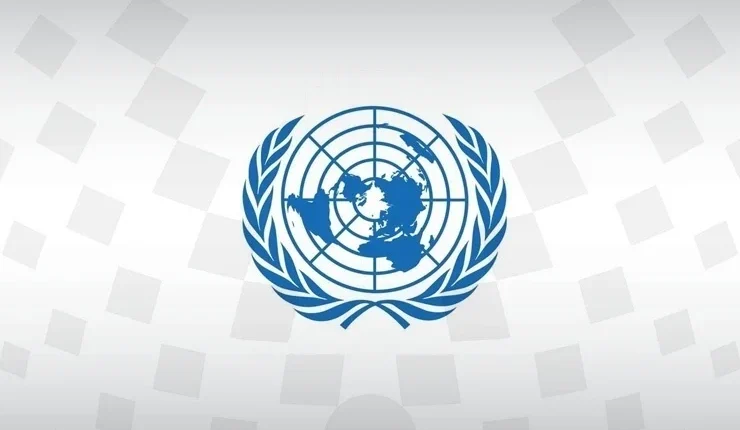UN: International Community in Solidarity with Victims of Sexual Violence in Sudan; Fact Finding Mission explicitly Accuses RSF of Committing Crimes

Port Sudan – Sudanhorizon
The United Nations Resident and Humanitarian Coordinator in Sudan, Kristine Hambrouck, has issued a statement on the occasion of the International Day for the Elimination of Sexual Violence in Conflict, expressing international organization’s solidarity with survivors across Sudan, and reaffirming the collective commitment of nations and international organizations to combat and respond to these grave violations.
Kristine has stressed in her statement that reports related to conflict-related sexual violence (CRSV) continue to emerge at an alarming rate, indicating that women and girls are disproportionately affected, subjected to rape, sexual slavery, abduction, and other forms of brutal violence, just as men and boys face sexual violence, often in silence with limited recognition of their needs.
She noted that survivors bear a significant part of this crisis, often unable to access services, and when they do, their access is limited to care, protection, and justice.
But the statement also praised the extraordinary and uncommon courage of survivors of conflict-related sexual violence who continue to report their experiences despite stigma and fear; and of the women-led organizations that provide crucial support to survivors with limited resources and dangerous conditions.
The statement from the UN official comes two days after the release of a report by the UN Fact-Finding Mission in Sudan, titled “International Crimes and Horrific Violations in Sudan,” which indicated that women in Sudan face an increasing risk of sexual violence amid the ongoing war in the country.
According to a brief statement published by the UN Human Rights, the United Nations Independent International Fact-Finding Mission on Sudan warned of the escalating civil war in Sudan, which has had deadly consequences for countless civilians caught in the conflict.
The mission called on the international community to implement an arms embargo and ensure accountability for those responsible for serious human rights violations.
The Fact-Finding mission presented its latest findings before the Human Rights Council in Geneva on Tuesday, indicating that it had documented an increase in the use of heavy weapons in populated areas and a sharp rise in sexual and gender-based violence.
It pointed out that humanitarian aid is being used as a weapon and that hospitals and medical facilities are under siege.
The brief statement quoted mission member Mona Rashmawi as saying that what began as a political and security crisis has now become a serious emergency in terms of human rights and protection, involving the commission of international crimes that tarnish the reputation of all involved, while civilians continue to bear the brunt of escalating violence and clashes.
The brief noted that since its last report to the Human Rights Council, the mission has conducted 240 interviews, received 110 written responses, verified the authenticity of 30 video clips, identified geographic locations for eight attacks, and is compiling files to identify potential perpetrators.
The mission noted the intensive use of shelling in populated areas where civilians in the vicinity of El Fasher have been subjected to assault, detention, and killing, and there have been targeted attacks.
“Civilians in the vicinity of Al Fashir have been subjected to assault, detention, and killing, while villages have been attacked and set on fire, and properties looted by the Rapid Support Forces. During one attack by these forces from April 10 to 13, more than 100 civilians were killed, and another bombardment by the Rapid Support Forces on Al-Kouma resulted in the deaths of at least 15 civilians.”
The mission stated that the El Fasher Hospital in Darfur suffered partial destruction after artillery shelling last October. The mission pointed out that in areas where the Sudanese armed forces regained control, such as Khartoum, Gezira, and Sinnar, it documented widespread retaliatory violence between late 2024 and mid-2025.
Individuals there believed to have supported the rebel Rapid Support Forces have faced arbitrary detention, torture, and in some cases execution. The Rapid Support Forces also carried out retaliatory attacks, killing 30 civilians in the Al-Salha neighborhood of Omdurman in April.
The mission alleged that humanitarian relief has been used and continues to be used as a weapon, stating that the Sudanese armed forces imposed bureaucratic restrictions; “while the Rapid Support Forces looted convoys and completely prevented the delivery of aid.”
The mission warned that such actions were pushing the country towards famine, particularly in Darfur. The mission conveyed the identification of the attacks that took place on June 2 this year when a UN convoy was bombed in El Koma en route to El Fasher, killing five of its staff.
The RSF bombed the Saudi hospital in El Fasher dozens of times and in May, a RSF drone bombed the El-Obeid International Hospital in North Kordofan, killing six civilians and causing the closure of the last functioning health clinics in the area.
The mission noted that it found “a sharp rise in sexual and gender-based violence where women and girls are subjected to rape, gang rape, abduction, sexual slavery and forced marriage, mostly in displacement camps under the control of the RSF.”
Shortlink: https://sudanhorizon.com/?p=6037

